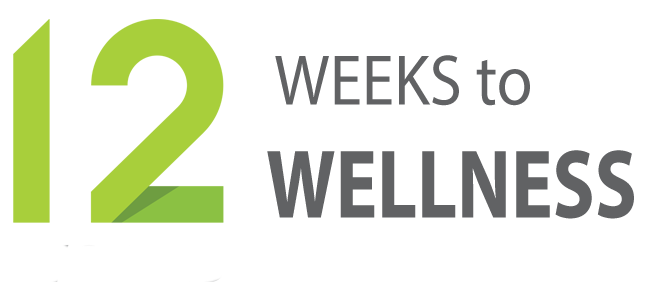
Body and weight positivity are the big buzz words in a recent paradigm shift in the healthcare field and now also in the workplace that align with a culture of inclusivity and diversity. Instead of weight management initiatives, organizations are promoting wellness initiatives that focus on the mental and physical well being and making healthy lifestyle changes, instead of focusing on weight. Leaders have a vital role of modeling body and weight inclusivity and positivity in the workplace.
What does body positivity bring to the workplace?
Body positivity is about creating an environment where individuals of all shapes, sizes, and appearances feel valued and respected. This also means fostering a work environment where employees are judged based on their skills, contributions, and character rather than their physical attributes.
Here are some reasons why body positivity matters in the workplace:
- Boosts Morale and Confidence: When employees feel accepted and appreciated for who they are, regardless of their body size or shape, it enhances their self-esteem and confidence which leads to higher morale and productivity.
- Promotes Mental Well-being: Negative body image can take a toll on mental health, leading to anxiety, depression, and low self-esteem. By promoting body positivity, workplaces can contribute to the mental well-being of their employees, creating a supportive environment where individuals feel comfortable being themselves.
- Enhances Diversity and Inclusivity: Body positivity is an essential aspect of diversity and inclusivity. .
- Encourages Healthy Behaviors: Body positivity is about accepting and respecting people regardless of their size or shape where the workplace plays a role in encouraging healthy behaviors by promoting initiatives to enhance physical activity, intuitive eating, and access to mental health support services.
- Combats Discrimination and Bias: By promoting body positivity, organizations can challenge stereotypes and biases, creating a more equitable and respectful environment for all employees.
What are some specific strategies to foster body positivity in the workplace?
- Educational Workshops and Training: Organize workshops and training sessions to raise awareness about body positivity, including the impact of body shaming and ways to promote a more inclusive environment.
- Reviewing Policies and Practices: Evaluate existing policies and practices around dress codes, wellness programs, and recruitment practices to ensure they are inclusive and do not inadvertently perpetuate body shaming or discrimination.
- Representation in Marketing Materials: Ensure that marketing materials, such as company websites, brochures, and advertisements, feature a diverse range of body types and appearances. This sends a message of inclusivity both internally to employees and externally to clients and customers.
- Employee Resource Groups: Establish employee resource groups or affinity groups focused on promoting body positivity and inclusivity. These groups can provide support, organize events, and advocate for changes within the organization to better accommodate diverse body types.
- Wellness Programs with a Holistic Approach: Offer wellness programs that focus on overall health and well-being rather than solely on weight loss or physical appearance. This could include workshops on body acceptance, mindfulness practices, and resources for improving mental health.
- Training on Implicit Bias and Stereotypes: Provide training sessions for employees and managers to raise awareness about implicit bias and stereotypes related to body image. This can help employees recognize and challenge their own biases and create a more inclusive workplace culture.
- Celebrating Diversity in Employee Recognition Programs: When recognizing employee achievements or milestones, ensure that diversity, including diversity in body types, is celebrated and acknowledged. This can help reinforce a culture that values and appreciates individuals for their contributions rather than their appearance
One a more personal level, as a coach, I have noticed a trend where clients are wanting to work more often on the relationship they have with their body and around food. They still want to lose weight but are telling me that weight loss is no longer the measuring stick but the icing on the cake. The ingredients that we use in coaching to build that relationship are tools, such as challenging negative beliefs about one’s body and questioning beauty standards, learning about self compassion and learning to trust their bodies, gratitude and body appreciation exercises.
Clients will often feel relieved after they have given themselves permission to let go of the expectation to strive for an ideal body mass index. They now have the freedom to design their own plan which often involves finding ways to enjoy moving their body more, eating for enjoyment and health vs. counting macros and calories and needing to feel guilty when weight goals are not met.
Most importantly, body positivity can bring a sense of comfort and confidence in one’s own skin and empowers individuals to make choices that feel good for their body. Being in a positive relationship with one’s body encourages self-compassion and in itself is an act of self care which positively impacts mental and emotional wellbeing leading to greater engagement and productivity in the workplace.
If your organization would like to learn more about our Body Positive Challenge to shift your work culture, please contact us at [email protected].
Author: Bettina Mackenbach
Coach and Dietitian Team Lead, BSC, Registered Dietitian Team Lead, Registered Dietitian & Certified Health and Wellness Coach
Bettina works with clients and also takes an active role in the development of new program and webinar content, as well as workshop delivery. As a Registered Dietitian and Certified Health & Wellness Coach, Bettina brings over 20 years of experience ranging from working as a clinical dietitian, in executive wellness, pre-and post-natal community nutrition, long-term care and coaching clients through all stages of life.
Bettina uses a client-centered and evidence-based approach, holding the client accountable and facilitating the process of self-discovery with focus on self-talk and self-compassion, tools that help support her clients in pursuing a happier, healthier, and more balanced life
